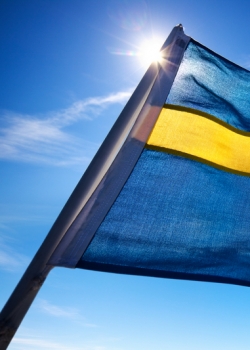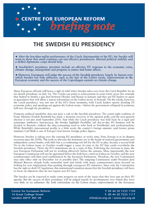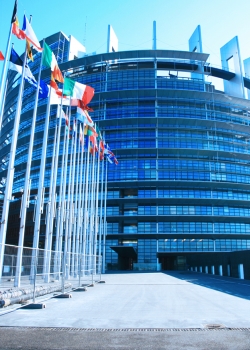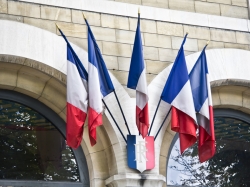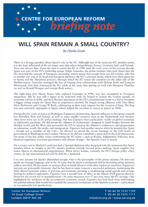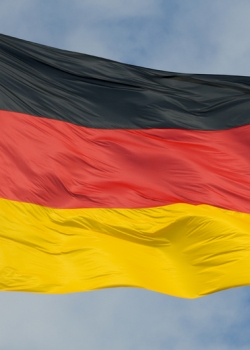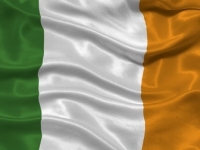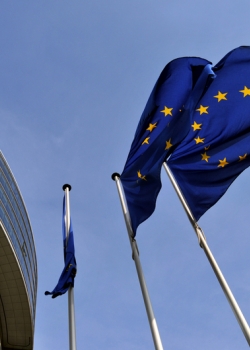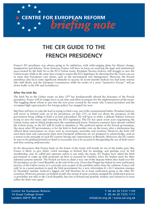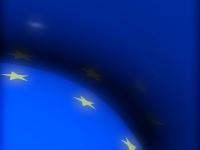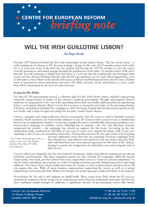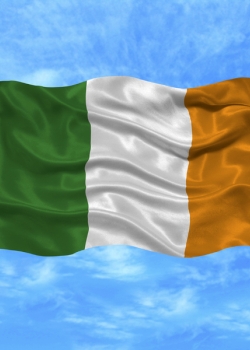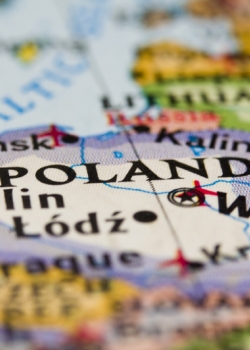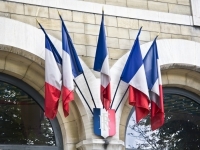The roles & policies of other member-states
Carl Bildt and the cost of speaking plainly
21 July 2009
Carl Bildt is better known throughout the world than most of his fellow EU foreign ministers – and many of the prime ministers, too.
The Swedish EU presidency
01 July 2009
A painful recession in Europe, uncertain prospects for the Lisbon treaty, a looming gas crisis in Ukraine and a lame-duck Commission are some of the challenges that the Swedish EU presidency will have to deal with in the second half of 2009.
EU politics after the elections
10 June 2009
EU policies were not the issue that guided most voters in last week’s elections to the European Parliament. The economic crisis and job safety were uppermost in people’s minds.
Are the British the new French?
05 May 2009
The British tend to deride France as a hopelessly statist, anti-entrepreneurial country full of bolshie workers intent on extracting disproportionate rewards for their labour and a state too weak to resist them. This characterisation is not wholly inaccurate.
Will Spain remain a small country?
01 May 2009
Spain punches below its weight in EU policy-making. Since Jose Luis Rodriguez Zapatero became prime minister, five years ago, Spanish influence in the EU has diminished.
Germany: Between a rock and a hard place
19 February 2009
Twelve months ago it seemed inconceivable that any member of the EU could face a sovereign debt crisis. It would have been the stuff of fantasy to argue that Ireland or Austria could be among those at risk.
The Irish send out good vibrations on Lisbon
08 December 2008
Ireland’s parliament – the Oireachtas – recently published a lengthy report on where the country’s relationship with the EU stands after the country’s rejection of the Lisbon treaty by referendum.
Issue 63 - 2008
28 November 2008
- The EU's fleeting chance for global leadership, Charles Grant
- The EU's climate agenda hangs in the balance, Simon Tilford
- How the Irish government might save Lisbon, Hugo Brady
How a new Irish government might save Lisbon
24 October 2008
The financial crisis is challenging many of our assumptions about the course of politics and world affairs. Gordon Brown – only weeks ago portrayed as nearing the end of his time as UK prime minister – has been elevated to European, even global leadership status.
The CER guide to the French presidency
04 July 2008
France's EU presidency was always going to be ambitious, with wideranging plans for climate change, immigration and defence. Now, however, France will have to focus on resolving the legal and institutional mess created by the Irish No to the EU's Lisbon treaty. President Nicolas Sarkozy will struggle to save the...
Tough choices to avoid euro-paralysis
19 June 2008
The Irish did the wrong thing for the right reasons in their referendum on the Lisbon treaty. Voters rejected an international treaty, the benefits of which did not seem to merit a change to the country's constitution.
Will the Irish guillotine Lisbon?
04 June 2008
On 12 June 2008 Ireland will hold the EU's only referendum on the Lisbon Treaty. With the campaign entering its decisive phase, polls indicate that the vote could be dramatically close with turnout determining the result.
Bad omens loom over Irish referendum
01 February 2008
Ireland's voters have a crucial decision to make on the future of the EU – in May or June this year – when they vote in the only referendum on the Treaty of Lisbon.
Poland’s bold new foreign policy
01 February 2008
For the rest of Europe, the worst thing about Poland’s Law and Justice government, led by Jaroslaw Kaczynski, was its foreign policy. His approach towards Russia, Germany and (sometimes) the EU – supported by his twin brother, President Lech Kaczynski – was confrontational.
Poland's bold new foreign policy
17 January 2008
As far as the rest of Europe was concerned, the worst thing about Poland’s Law and Justice government, led by Jaroslaw Kaczynski (and supported by his twin brother, President Lech Kaczynski), was its foreign policy. The twins’ attitude towards Russia, Germany and – sometimes – the EU was confrontational. The Civic Platform government that took over in October is shifting Poland’s foreign policy. Its ministers often speak to the Germans without reminding them of the war. More controversially, the government is trying to build bridges with Russia. Moscow has lifted its ban on meat exports from Poland, while Warsaw has consulted the Russians about the Bush administration’s plans to deploy missile defence systems in Poland. Prime Minister Donald Tusk is much less enthusiastic than the Kaczynskis about missile defence
Politics, Sarkozy and the euro
03 December 2007
Not long after its launch, the euro was famously dismissed by a disgruntled currency trader as a “toilet currency”. How things have changed. Since 2003, the euro’s external value has soared, particularly against the US dollar.
Issue 57 - 2008
30 November 2007
- Politics, Sarkozy and the euro, Philip Whyte
- Europe’s defence and its new security strategy, Tomas Valasek
- The EU must stand firm on Bosnia, Charles Grant, Tomas Valasek
Sarkonomics – a user’s guide
08 November 2007
President Sarkozy is frequently portrayed in France and elsewhere as an “economic liberal”. This is a mistake. He is undoubtedly an economic reformer prepared to take on the privileges of labour market “insiders”; but he retains a French dirigiste’s belief in an active role for the state in economic development. This manifests itself in several areas, including his support for “national champions”, his mercantilist vision of international trade, and his belief that governments should have greater influence over the European Central Bank (ECB).
Sarkozy on America and the world
29 August 2007
In his first 100 days in the office, Nicolas Sarkozy turned France’s domestic political scene on its head. He trounced and marginalised the far-right National Front in the May presidential elections.
Poland’s poll and the EU treaty
24 August 2007
Poland’s early election may coincide with the last days of talks on the new EU Reform Treaty. Although the Kaczynskis are unlikely to reopen a deal agreed in June on the treaty's content, last minute political posturing for a home audience could delay the text being signed off.

